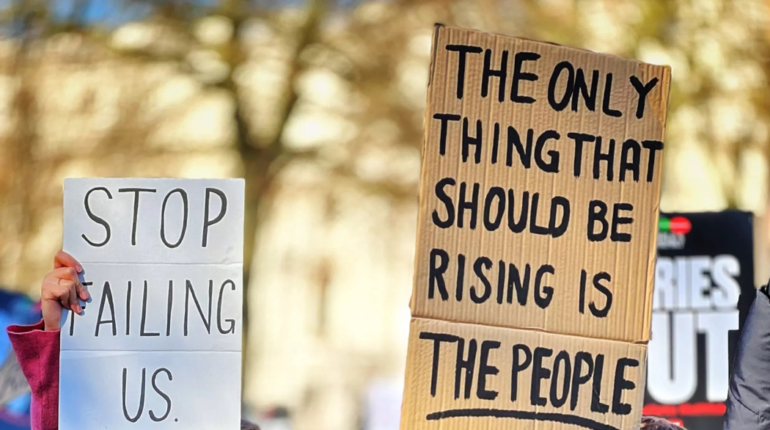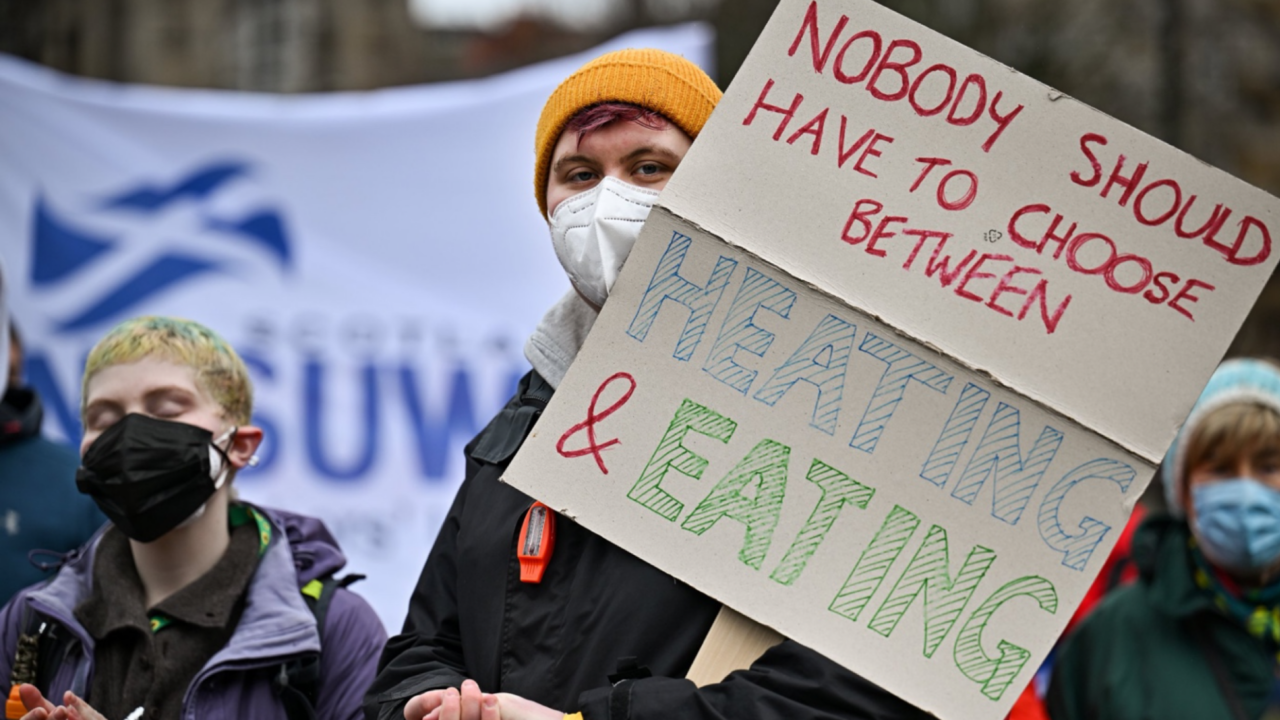In Italy, hundreds of unemployed Naples residents gathered to demand support from the government, burning their energy bills in the central Piazza Matteotti.
Speaking to journalists protestors said, ‘We are tired of promises. We have been waiting for jobs for years and now we cannot pay these figures, which have trebled. Up until now there have been lots of words for us but not much action.’
In the UK, more than 170,000 people have joined in the Don’t Pay movement, which will see British residents refuse to pay their energy bills from October if 1 million individuals sign the petition.
Don’t Pay is leveraged further by the #EnoughIsEnough campaign, which has mobilised to demand government action in four areas: increased wages, slashed energy bills, a plan to end food poverty, improvements to housing availability and quality, and lastly, new legislation to tax the rich.
Elsewhere in Europe, 70,000 people gathered in Czech Republic to rally against the nation’s supplying of arms to Ukraine, which caused Putin to reduce gas supplies to the region in early August.
Although Czech leaders announced in July that gas stores are at 80 percent capacity, citizens remain fearful that the nation will run out during the long winter ahead and are protesting in favour of a new energy agreement with Russia.
And, despite Germany’s one-off energy bill rebate of €300 and doubled student loan sums set to hit bank accounts this month, experts warn riots sparked by right-wing extremists experiencing economic hardship are almost inevitable.
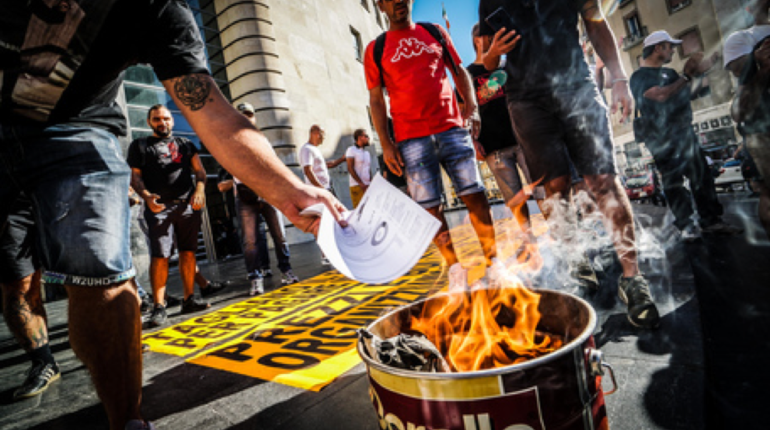
Places where things are looking up
In France, the people have had more say in the matter. The act of public protest is embedded in the French DNA and with good reason: their government actually listens.
After gas prices rose in 2018 and protests erupted, the French government capped prices and sent €100 ‘energy cheques’ to six million low-income households. Shortly after, the government amplified their decarbonisation strategy and created a citizen’s assembly to directly advise the President on policy related to climate change.
The French now benefit from stable gas prices, which were frozen in October of last year. Now, electricity price increases have been capped at 4 percent (at least until 2023) and €100 has been sent to low income households to cover energy bills.
Questioning why UK leaders have done virtually nothing in the face of inflation, despite an excellent example from their closest neighbours, Owen Jones boldly wrote for The Guardian, ‘Put simply, France’s rulers fear their people. In Britain, as things stand, they do not.’

Across the pond, the US signed in the Inflation Reduction Act which is seeing student debt forgiveness of $10k granted to those making less than $120k annually. The bill is also set to reduce healthcare and medical costs for the elderly.
In the Netherlands, Turkey, and Japan governments have also made moves to ease the pressure of inflation by increasing the legal minimum wage.
Spain has plans to cut VAT on gas from 21 percent to a low 5 percent during winter months, and Norway has capped electricity bills and is providing state coverage for up to 80 percent of usage.
In Asia, the government of Malaysia is spending over $17bn in subsidies to aid energy prices and Bangladeshi leaders have subsidised food, oil, fertiliser, gas, and electricity to support over 10 million people.
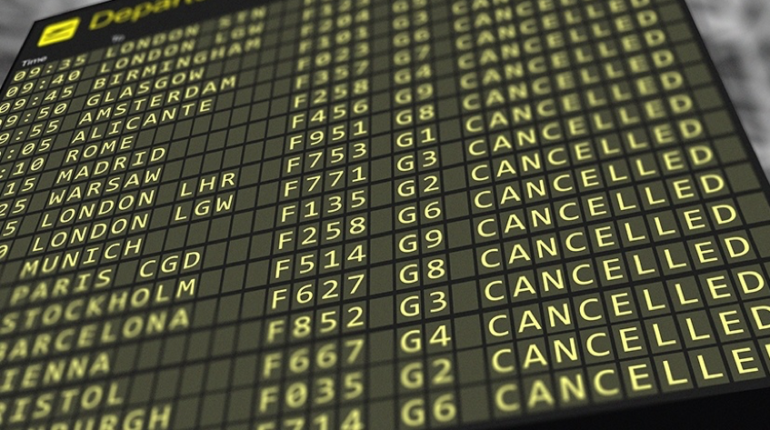
A logistical nightmare
Inflation isn’t just affecting the amount of money leaving our bank accounts. It’s also affecting our usual patterns, habits, and for many, the willingness to work.
I probably don’t need to remind you that public transport strikes have become extremely frequent in places like the UK, Spain, France, Germany, Norway, and Belgium as workers push for higher wages to cope with skyrocketing inflation.
Aviation sectors are also seeing employees walk, with budget carriers like EasyJet receiving requests for a 40 percent pay increase from their fleet teams.
Ireland’s Ryanair saw thousands of flights cut, and Scandi Airline (SAS AB) employees staged fifteen-day walkouts, reducing capacity by 23 percent during that period.
An explosion in post-pandemic travel combined with long-stagnant wages has led to frustration that has caused thousands of flights and train services to be cancelled due to staff-shortages.
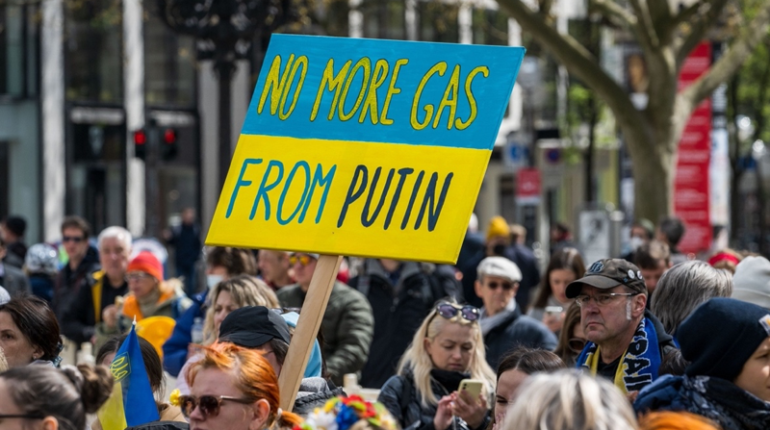
Though Putin may not exactly be winning the war, he may be getting a kick out of watching global governments grapple with pushback from citizens as he withholds Russian oil and gas, weaponising the energy sector, and seeing the international economy come close to collapsing in on itself.
And while some governments are handling the situation better than others, it’s only a matter of time before everyone is forced to act, especially as winter draws nearer and the use of energy becomes vital for heating.
I’m not the first to say it, but rioters, rallyists, and strikes will only feel further legitimised if a lack of drastic action continues.
